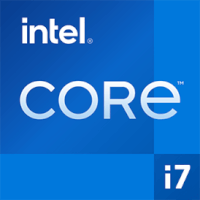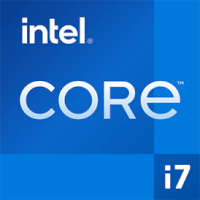

| Intel Core i7-10700T | Intel Core i7-10700K | |
| 2.00 GHz | Frequency | 3.80 GHz |
| 4.50 GHz | Turbo (1 Core) | 5.10 GHz |
| 3.70 GHz | Turbo (All Cores) | 4.90 GHz |
| 8 | Cores | 8 |
| Yes | Hyperthreading ? | Yes |
| No | Overclocking ? | Yes |
| normal | Core architecture | normal |
| Intel UHD Graphics 630 | GPU | Intel UHD Graphics 630 |
| 12 | DirectX Version | 12 |
| 3 | Max. displays | 3 |
| DDR4-2933 | Memory | DDR4-2933 |
| 2 | Memory channels | 2 |
| 128 GB | Max. Memory | 128 GB |
| No | ECC | No |
| -- | L2 Cache | -- |
| 16.00 MB | L3 Cache | 16.00 MB |
| 3.0 | PCIe version | 3.0 |
| 16 | PCIe lanes | 16 |
| 14 nm | Technology | 14 nm |
| LGA 1200 | Socket | LGA 1200 |
| 35 W | TDP | 125 W |
| VT-x, VT-x EPT, VT-d | Virtualization | VT-x, VT-x EPT, VT-d |
| Q2/2020 | Release date | Q2/2020 |
| show more detail | show more detail |
Cinebench R23 is the successor of Cinebench R20 and is also based on the Cinema 4 Suite. Cinema 4 is a worldwide used software to create 3D forms. The single-core test only uses one CPU core, the amount of cores or hyperthreading ability doesn't count.
Cinebench R23 is the successor of Cinebench R20 and is also based on the Cinema 4 Suite. Cinema 4 is a worldwide used software to create 3D forms. The multi-core test involves all CPU cores and taks a big advantage of hyperthreading.
Cinebench R20 is the successor of Cinebench R15 and is also based on the Cinema 4 Suite. Cinema 4 is a worldwide used software to create 3D forms. The single-core test only uses one CPU core, the amount of cores or hyperthreading ability doesn't count.
Cinebench R20 is the successor of Cinebench R15 and is also based on the Cinema 4 Suite. Cinema 4 is a worldwide used software to create 3D forms. The multi-core test involves all CPU cores and taks a big advantage of hyperthreading.
Cinebench R15 is the successor of Cinebench 11.5 and is also based on the Cinema 4 Suite. Cinema 4 is a worldwide used software to create 3D forms. The single-core test only uses one CPU core, the amount of cores or hyperthreading ability doesn't count.
Cinebench R15 is the successor of Cinebench 11.5 and is also based on the Cinema 4 Suite. Cinema 4 is a worldwide used software to create 3D forms. The multi-core test involves all CPU cores and taks a big advantage of hyperthreading.
Geekbench 5 is a cross plattform benchmark that heavily uses the systems memory. A fast memory will push the result a lot. The single-core test only uses one CPU core, the amount of cores or hyperthreading ability doesn't count.
Geekbench 5 is a cross plattform benchmark that heavily uses the systems memory. A fast memory will push the result a lot. The multi-core test involves all CPU cores and taks a big advantage of hyperthreading.
The theoretical computing performance of the internal graphics unit of the processor with simple accuracy (32 bit) in GFLOPS. GFLOPS indicates how many billion floating point operations the iGPU can perform per second.
Some of the CPUs listed below have been benchmarked by CPU-Benchmark. However the majority of CPUs have not been tested and the results have been estimated by a CPU-Benchmark’s secret proprietary formula. As such they do not accurately reflect the actual Passmark CPU mark values and are not endorsed by PassMark Software Pty Ltd.
The crypto currency Monero has been using the RandomX algorithm since November 2019. This PoW (proof of work) algorithm can only efficiently be calculated using a processor (CPU) or a graphics card (GPU). The CryptoNight algorithm was used for Monero until November 2019, but it could be calculated using ASICs. RandomX benefits from a high number of CPU cores, cache and a fast connection of the memory via as many memory channels as possible